myHIN Blog

January 07, 2013
How Can HIV/AIDs Be Eliminated In The African American Communitiy?
As we review headlines and cutting edge research emerging from national and international agencies such as CDC, NIH, and WHO, we notice that the fight to eliminate HIV/AIDS as a threat to life across the globe is becoming more within our reach. The contrast is that the development of a vaccine and a cure is still a long time coming for those who are living with and most at risk of contracting HIV/AIDS. The African American community is commonly experiencing and at risk for the most averse health conditions, and that includes HIV/AIDS. Considering that the HIV/AIDS pandemic has been ravaging our community for more than 30 years, we have to consider what makes this issue so much more prevalent in our community for such a consistent and growing number of years.
I propose strategies to eliminating minority health disparities related to HIV/AIDS within the African American community. One is providing comprehensive mental health care (including substance abuse treatment) at a reduced rate or for free to address the challenges that African Americans face in navigating the micro-aggressions and life stressors that they experience in daily life, within their families, and in their sexual and romantic relationships. More accountability for medical and scientific negligence and malpractice must be enforced through regulations that see to it, that true human protections are secured for all patients and research subjects. This must be done not just as a means to compensate patients for inappropriate or harmful medical errors, but also a means to correct and improve the science and art of medical practice. Remaining committed to improving the standards of equitable, accountable, and high quality care for all patients will only make people more trusting and willing to adhere to the medical advice and treatment guidelines of their providers, medical institutions, and insurance companies. It is also important to improve early and primary educations initiatives to give African American youth the skills and confidence to thrive within STEM education. Increasing the pipeline of future health care providers through more readily available financial incentives for graduate and professional studies in the medical sciences is critical to correcting provider shortages. Finally the development and implementation of universal health care reform is necessary for effective and sustained changes to be made in addressing health care disparities, especially for African Americans.
Myhealthimpactnetwork.org provides an opportunity to discuss these and other issues related to health disparities. The site also provides the opportunity to discuss health, social and economic empowerment, particularly among young adults who can offer their views and put the “my” in myhealthimpact. How can you put the “my” to empower desirable health, social and economic development? How is your relationship with your “health” provider? How can you use your college studies in a way to drive meaningful “impact”?
Your comments are welcome.
Follow the MyHIN team @myhealthimpact on Twitter.
Niasha A. Brown, Ph.D. Student
Share
Comments
comments powered by DisqusIn Partnership with: Poole College of Management, College of Humanities and Social Sciences, National Science Foundation, Penn State
Take Action, Get Tested: Find Your Local Testing Center Why Get Tested?
